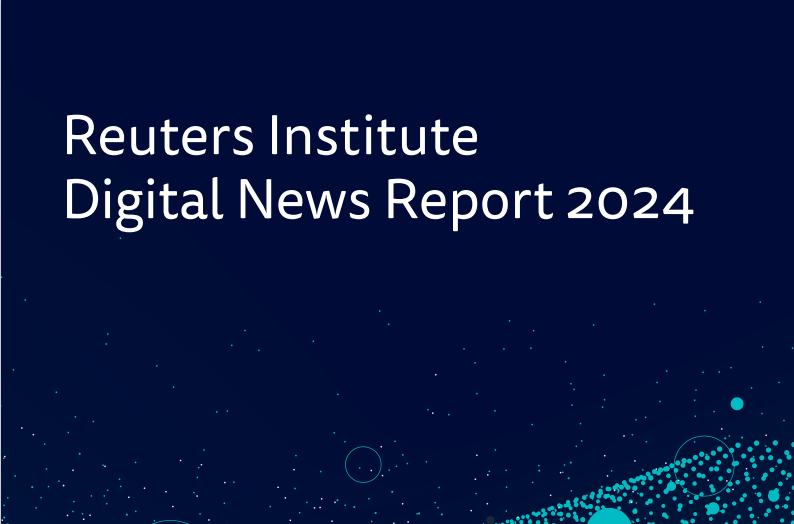Digital news landscape undergoing tectonic shifts, Reuters study finds
The Reuters Institute's report is based on a survey of nearly 100,000 people across 47 countries, making it one of the most comprehensive annual studies of digital news consumption globally.
OXFORD, United Kingdom-The way people get their news is undergoing a seismic shift, according to an extensive new report, with troubling implications for legacy media outlets struggling to remain relevant as technology platforms prioritize fresher voices over traditional publishers, writes Winston Mwale.
The Digital News Report 2024, released Thursday by the Reuters Institute for the Study of Journalism, depicts an industry being reshaped by the same forces of disruption that have upended other sectors - but at a pace leaving many publishers struggling to keep up.
The report's stark findings illustrate the diminished distribution power of established social media sites like Facebook and Twitter when it comes to news content.
Instead, nimbler upstarts like TikTok, Instagram and YouTube have gained considerable ground, along with messaging apps like WhatsApp in international markets.
"Publishers are on their back foot, desperately trying to gain traction anywhere they can as the digital terrain continues shifting under their feet," said Rasmus Kleis Nielsen, director of the Reuters Institute.
"The report provides a much-needed wakeup call that many are still hitting the snooze button on."
Perhaps the most striking revelation in the comprehensive 110-page study: the outsized influence now wielded by creators, influencers and other alternative voices that have steadily sapped attention from mainstream news sources - even on matters of vital public interest.
"Legacy platforms are diminishing news in their feeds, while new apps are a free-for-all putting untrained voices on equal footing with seasoned journalists," said Nielsen, whose institute is based at the University of Oxford.
"It's a wildly uneven playing field."
The report paints a bleak picture worldwide.
In country after country, publishers find themselves being drowned out by a rising tide of digital creators making splashy content prioritized by algorithms craving more engagement from users being inundated with information and increasingly numb to news from authoritative sources.
In Thailand, for example, the study's authors found that social media influencers garner larger audiences for news than professional newsrooms.
In Kenya, the researchers identified WhatsApp groups as among the most influential news sources nationwide, despite concerns about misinformation and lack of editorial oversight.
Even in the United States, a nation with a robust tradition of regional journalism, the report documents how global platforms and their catchall distribution systems are threatening to make geographic media businesses an quaint relic.
The findings suggest that creators who tailor content to hyper-engaged audiences may have a lasting advantage over legacy newsrooms covering communities with a sense of public import but diminishing public interest.
While the Digital News Report emphasizes that publishers can reverse these trends by focusing more on digital video and other storytelling techniques craved by platform algorithms, the findings make clear the immense challenges they face due to miscalculating the speed of the technological disruption.
"There's no putting this genie back in the bottle," said Nielsen. "It's an entirely new paradigm that many publishers still haven't grasped."
The Reuters Institute's report is based on a survey of nearly 100,000 people across 47 countries, making it one of the most comprehensive annual studies of digital news consumption globally.
This year's edition was sponsored by the Google News Initiative, BBC News and other outlets.
*Download the report below:




